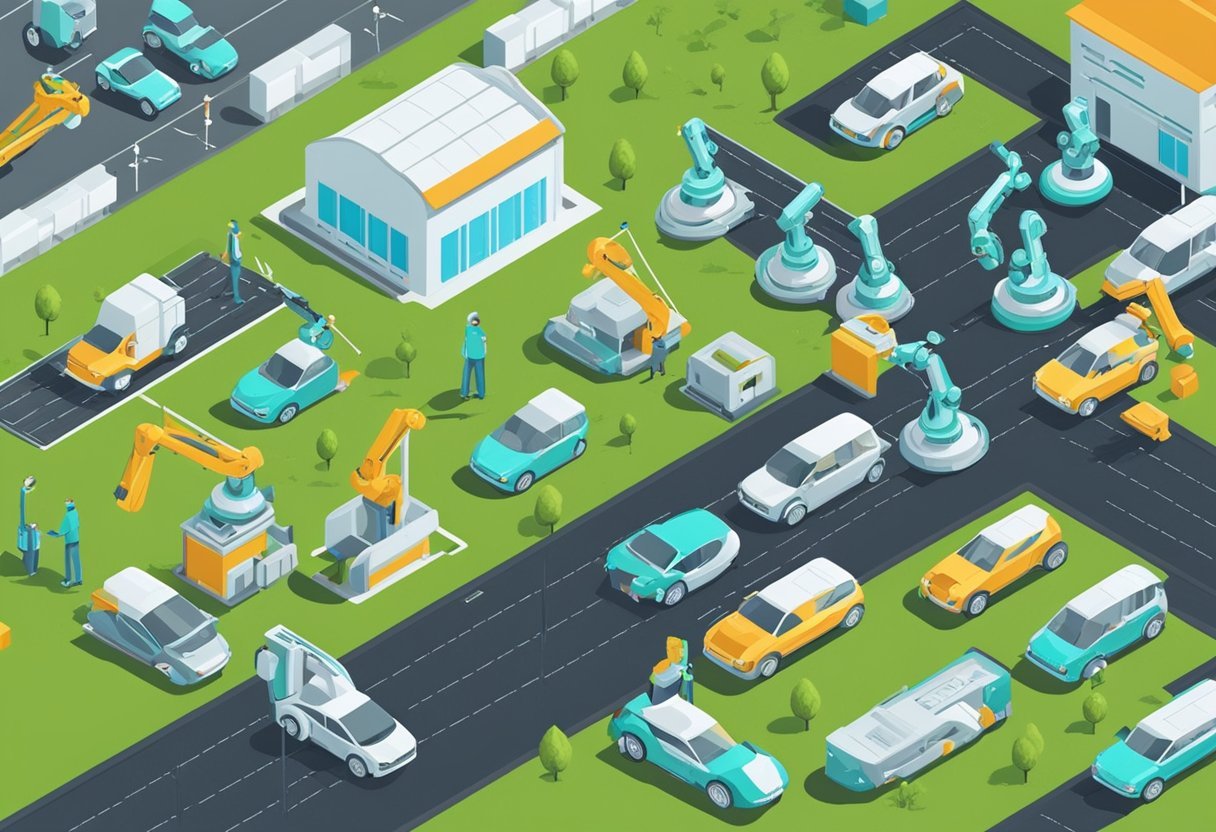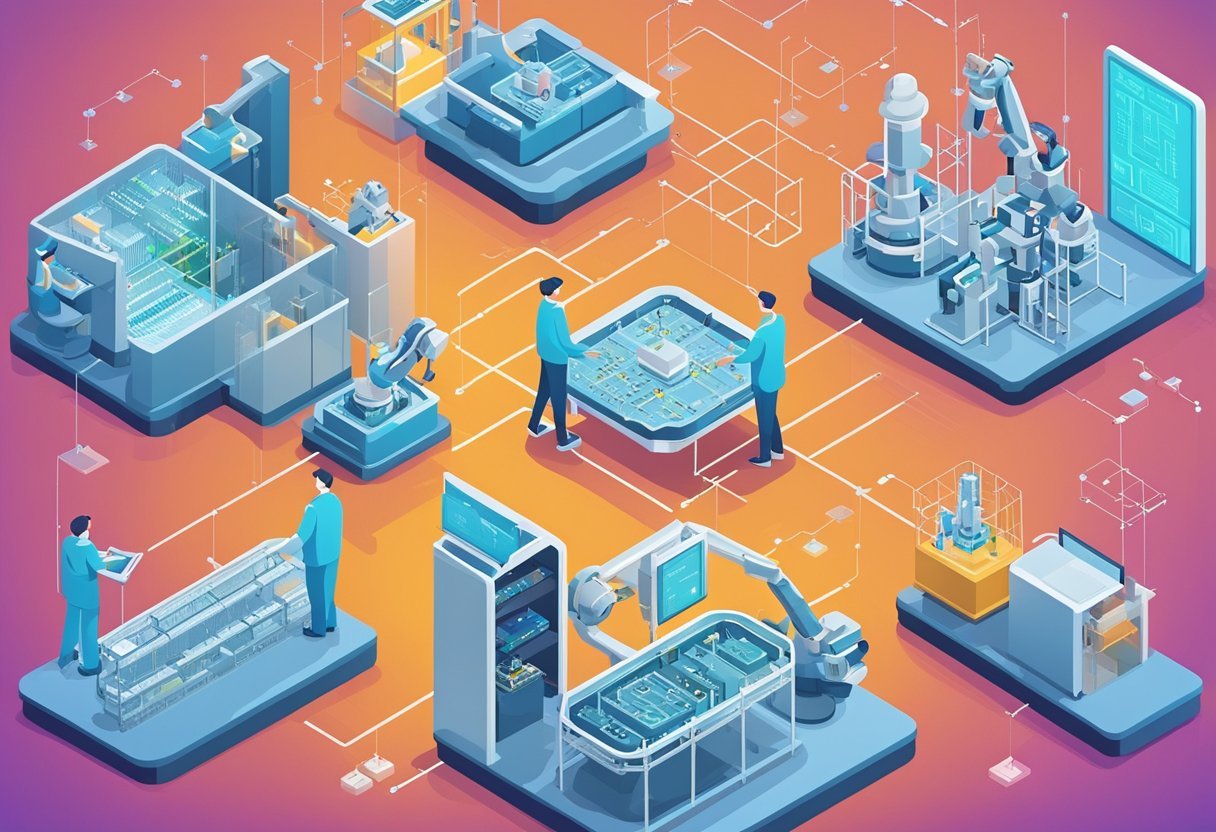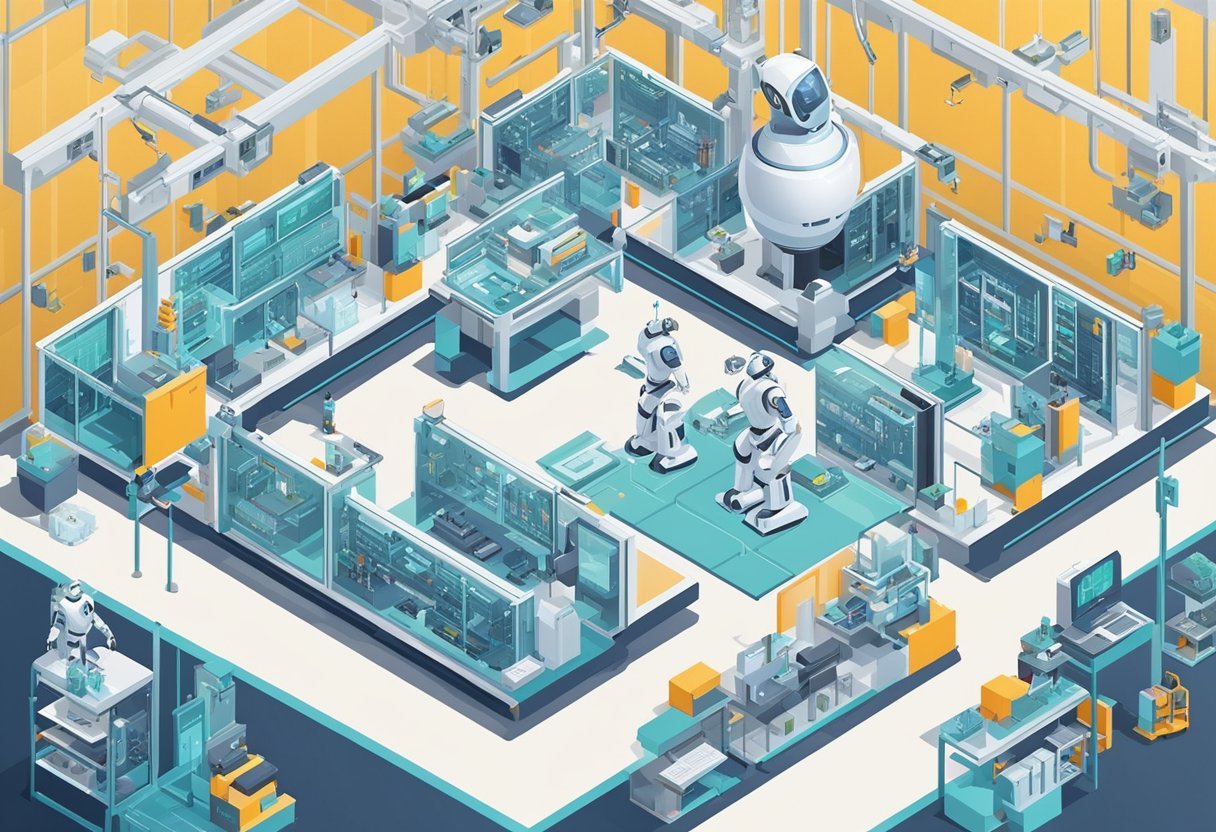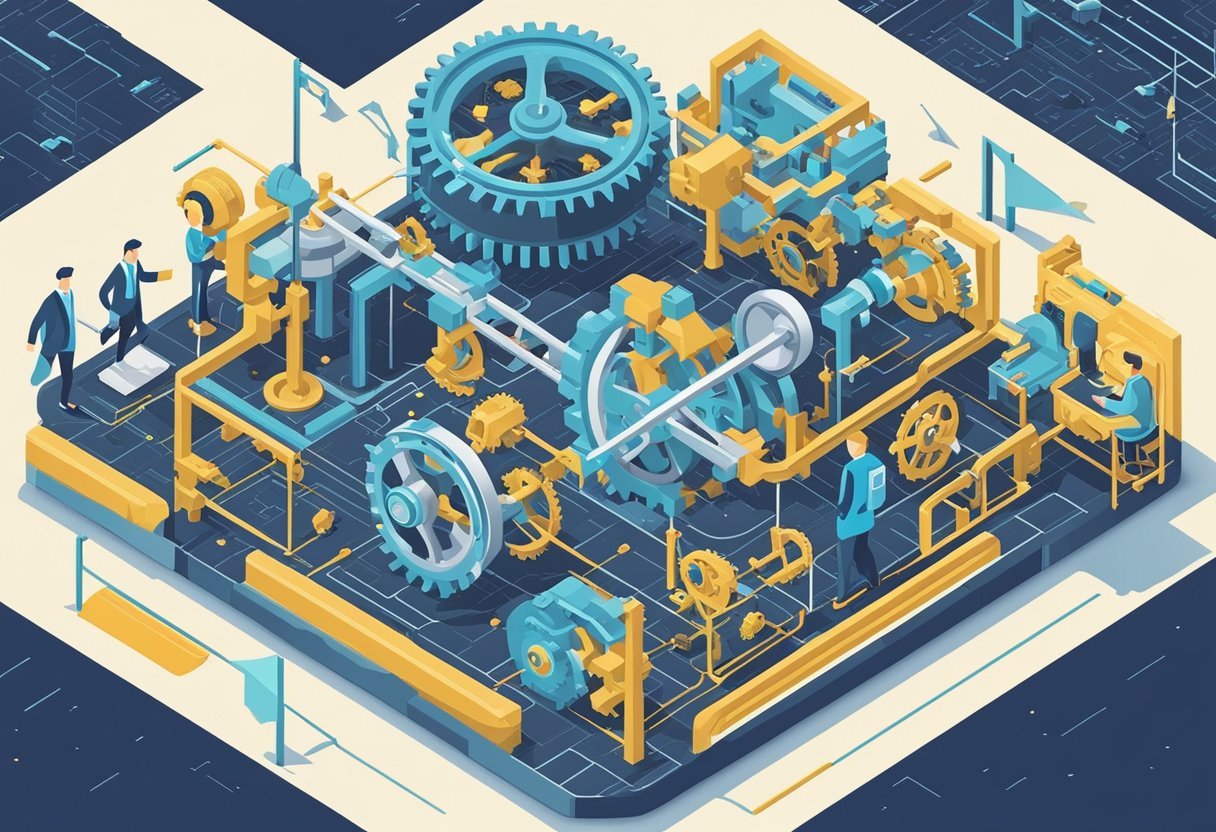Revolutionizing Industries: The Transformative Power of AI
Artificial intelligence (AI) is rapidly transforming the landscape of various industries, altering how businesses operate and deliver products and services. From manufacturing to healthcare, AI technologies are being integrated to enhance efficiency, analyze large datasets, automate tasks, and create new possibilities for innovation and growth. In manufacturing, for instance, AI is used for predictive maintenance and optimization of supply chains, ensuring that operations are more streamlined and cost-effective.
In the domain of retail, AI is personalizing the shopping experience, leveraging algorithms that recommend products based on consumer behavior and preferences. Similarly, in healthcare, AI assists with everything from diagnostic procedures to the development of personalized treatment plans, significantly impacting patient care and outcomes.
The influence of AI extends further into sectors such as finance, where it contributes to fraud detection and robo-advisory services, and in transportation with the advancement of autonomous vehicles. Across industries, AI is becoming an indispensable tool that supports human workers, augments decision-making processes, and unlocks new frontiers for business capabilities and customer interactions.
Revolutionizing Industries with AI
Artificial intelligence is not just a buzzword but a pivotal force behind the transformation of key industries. By leveraging AI, sectors such as health care, manufacturing, and transportation are experiencing a significant overhaul in their operations and service delivery.
Health Care Advancements
The health care sector is witnessing a remarkable revolution due to AI technology. Innovative applications range from predictive analytics for patient care to robot-assisted surgeries. For example, AI's ability to analyze vast datasets enables earlier detection of diseases, such as cancer, often identifying subtle patterns beyond human recognition. In addition, virtual nursing assistants are enhancing patient engagement and monitoring, leading to improved health outcomes.
Manufacturing Efficiency
Artificial intelligence is a powerful catalyst in manufacturing, driving remarkable gains in efficiency and productivity. Robots equipped with AI are now commonplace on the factory floor, performing tasks with precision and reducing human error. These advancements extend to predictive maintenance of equipment, minimizing downtime with algorithms that anticipate breakdowns before they occur. Supply chain optimization is another area where AI streamlines operations, enabling real-time decision-making that keeps production flowing seamlessly.
Transforming Transportation
Transportation has undergone a major shift with the advent of AI technology. Autonomous vehicles, using sophisticated machine learning algorithms, are making self-driving a reality, with the potential to reduce accidents and improve traffic flow. AI also contributes to intelligent transportation systems that optimize route planning and traffic management across cities, making commutes smoother and more efficient. Furthermore, AI-powered analytics are improving logistics, providing businesses with enhanced ways to manage their fleets and optimize delivery routes.
AI in Business and Customer Service
Artificial intelligence (AI) has become a cornerstone in enhancing customer service and transforming business operations. Organizations leverage sophisticated algorithms and AI-driven tools to tailor customer experiences, optimize decision-making, and streamline processes across various industries.
Retail and Personalization
In the retail sector, AI is a game-changer for personalization, using algorithms to craft tailored recommendations for consumers. Retail giants implement AI to analyze shopping patterns and preferences, enabling them to present customers with products they are more likely to buy. For instance, when a customer shops online, AI-driven chatbots can offer assistance, suggesting items based on their browsing history. These chatbots also handle numerous customer service inquiries simultaneously, improving response times and overall efficiency.
Financial Services Innovation
In the finance industry, AI plays a pivotal role in innovation and decision-making. Financial services firms employ AI to detect fraudulent activity, enhance customer support through chatbots, and make smarter investment decisions. CEOs and executives bank on AI to analyze market trends and generate data-driven insights, leading to more informed strategic planning. AI algorithms are critical in automating routine tasks, thus allowing finance professionals to focus on more complex issues and customer engagement.
AI-Driven Research and Development
Artificial intelligence has become a pivotal force in research and development, significantly speeding up innovation cycles and enabling more efficient data analysis in various sectors.
Accelerating Drug Discovery
In the realm of healthcare, AI is a game-changer for drug discovery. Machine learning algorithms are being employed to rapidly analyze biological data and predict molecular behavior. These capabilities are reducing the time and cost to identify potential new drugs that could move into the pipeline for further development. An example of AI's impact can be seen in how generative AI is used to autonomously design novel drug compounds, improving the hit rates and success chances in clinical trials.
Advancements in Computing Research
The computing industry is witnessing substantial advancements thanks to AI. Deep learning, a subset of machine learning, is instrumental in driving innovation in computing research. AI algorithms optimize data collection strategies and handle big data sets more competently, leading to groundbreaking developments in computing hardware and software. These advancements are not only enhancing computational speeds and capacities but are also expanding the potential applications of AI in other research domains.
Ethics, Regulation, and Policy in AI
In the rapidly evolving field of artificial intelligence, ethical considerations and regulatory measures have become integral to ensuring that development aligns with human values and contributes positively to the global GDP.
Navigating Ethical Considerations
Artificial intelligence presents unique challenges that necessitate a robust ethical framework. These challenges include ensuring fairness, protecting privacy, and preventing discrimination. A responsible approach to AI mandates that developers and stakeholders prioritize transparency and accountability in their systems. For instance, as AI takes on more decision-making roles, the technology must be carefully crafted to respect and augment human ethics, avoiding biases that may arise from its datasets or algorithms.
Policy and Regulatory Landscape
The implementation of AI in various sectors, especially those with significant impacts on the public like healthcare and banking, calls for comprehensive policies and regulations. Both government bodies and the private sector are instrumental in shaping these regulations. Policy efforts are centered on creating standards that safeguard consumer rights while propelling innovation. Globally, regions differ in their regulatory approaches to AI, with some advocating for stringent controls and others fostering a more laissez-faire environment. However, there is a consensus that the aim of regulation should be to benefit the economy by promoting the safe and ethical use of AI, with forecasts indicating its substantial contribution to the global GDP. Regulations also guide the private sector to responsibly navigate the competitive advantage AI provides while maintaining public trust.
Technological Evolution and AI Proliferation
Artificial Intelligence (AI) is a driving force behind the rapid technological changes across various industries, from enhancing creative processes with generative AI to revolutionizing transportation through autonomous vehicles and drones. This proliferation is not just reshaping how enterprises operate but also how they innovate.
Generative AI and Creativity
Generative AI leverages algorithms to create new, original content, whether it's text, images, or sounds. This technology opens up new avenues for creativity, proving particularly influential in the domains of digital marketing, game development, and even the creation of synthetic media. For instance, AI-driven tools are used to compose music or to generate unique art, significantly reducing the time and energy traditionally required in the creative process.
Autonomous Vehicles and Drones
The advent of autonomous driving technology has given rise to vehicles capable of navigating without human intervention, fueled by sophisticated sensor arrays and machine learning algorithms. Autonomous vehicles and drones increase efficiency within transport systems and logistics operations by minimizing delays and optimizing energy consumption. Additionally, enhanced safety features are a focus, with AI systems designed to reduce accidents. Drones, specifically, are transforming sectors such as agriculture, where they monitor crop health, and urban planning, where they assist in large-scale infrastructure inspection.
The Future of Work with AI Integration
As artificial intelligence (AI) becomes more pervasive, it drives significant changes in how work is performed across various industries, shaping both opportunities and challenges for the workforce and employers.
Automation and Job Displacement
AI-driven automation is redefining the landscape of employment, leading to a shift in job displacement. Machine learning algorithms and robotic process automation are taking over repetitive and routine tasks, thereby increasing productivity but also raising the concern for potential job losses. A study indicates that while some jobs may be displaced, others will be created, especially those requiring complex problem-solving and human interaction, emphasizing the duality of AI's impact on jobs. This phenomenon is stirring discussions around upskilling and adaptive workforce strategies.
New Avenues for Software Development
In the realm of software development, AI is catalyzing transformation by automating coding, testing, and deployment processes. Advanced machine learning models are now doing much of the heavy lifting, leading to the rise of new applications and services. Thus, developers are expected not only to write code but also to train AI models to perform a variety of tasks. This integration of AI is paving the way for more innovative and efficient development workflows, where human creativity is partnered with machine efficiency.
Enhancing Safety and Security with AI
Artificial intelligence is increasingly integral in bolstering safety and security across industries. It provides robust cybersecurity measures and augments public safety and emergency response capabilities, making risk assessment more predictive and fraud detection more precise.
Cybersecurity Enhancements
In the domain of cybersecurity, AI serves as a critical asset for organizations. The use of AI improves the detection of emerging threats and facilitates the swift recovery from security incidents. Through the deployment of sophisticated algorithms, AI systems can analyze vast datasets to identify suspicious activities, thereby mitigating risks associated with data breaches and cyber-attacks. For instance, AI-powered systems automate risk assessments, ensuring that security protocols are continuously updated to combat the latest threats. Investment in these systems is driven by the pressing need to safeguard sensitive information in an era of escalating cyberthreats.
AI in Public Safety and Emergency Response
From sensors that detect environmental hazards to analytics for predicting criminal activity, AI's role in public safety and emergency response is substantial. It streamlines the response to emergencies by analyzing real-time data from various sensors, which enables prompt dispatch of emergency services to affected areas. Furthermore, AI systems assist in fraud detection by monitoring transactions and communication channels for anomalous patterns. This not only protects assets but also strengthens safety protocols to preemptively address incidents that could endanger public welfare. Through strategic investments, cities and organizations are enhancing their capability to respond to crises more effectively.
The Impact of AI on Global Markets and GDP
The induction of Artificial Intelligence (AI) into global markets is instigating notable growth in various sectors. AI's potential to overhaul traditional business practices is unleashing levels of productivity and value generation previously unseen.
In the realm of economic growth, AI is a significant driver. For instance, with AI's ability to automate and optimize processes, labor productivity sees a considerable uptick. This digital transformation is forecasted to amplify global GDP growth, with one report suggesting an uplift of as much as 1.2 percent per year.
The landscape of power is evolving due to AI's effectiveness in catalyzing innovation. Countries leading in AI adoption, such as China and North America, are predicted to capture a combined 70% of the AI-fueled economic impact by 2030, potentially increasing China’s GDP by over 26% and North America's by 14.5%.
Yet, the pace at which AI is advancing also underscores the disruptive nature of the technology. Industries that are slow to adapt become increasingly vulnerable to competitors leveraging AI for efficiency and decision-making.
Amidst its ascent, AI heralds an unprecedented era for global markets. Effectiveness in managing workforce changes and fostering AI-inclusive strategies could lead to substantial economic gains, positioning societies for a future where AI is an integral part of sustaining prosperity.





